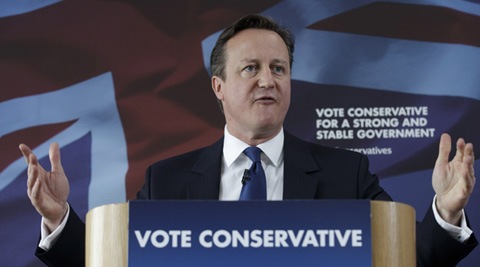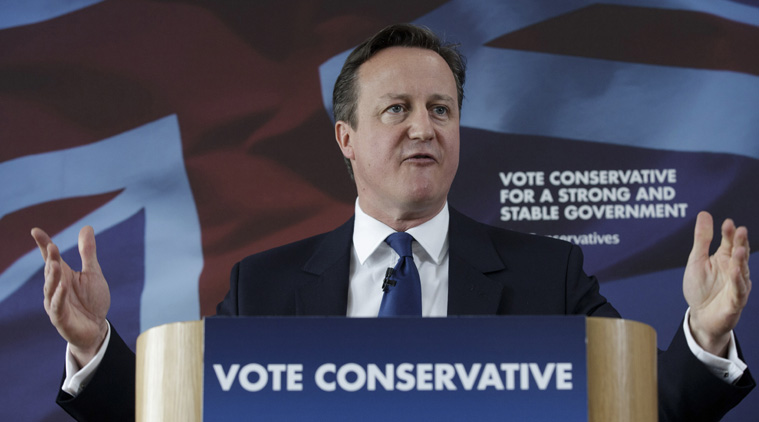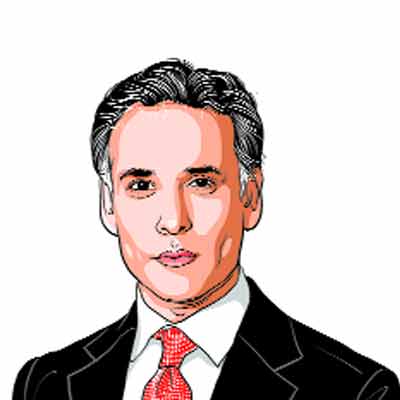Opinion Tories Unshackled
It will be a Conservative government doing conservative things in the UK.

 David Cameron defied anti-incumbency, winning a slender majority of 330 seats, and followed in the footsteps of Margaret Thatcher by increasing his party’s tally in the second term.
David Cameron defied anti-incumbency, winning a slender majority of 330 seats, and followed in the footsteps of Margaret Thatcher by increasing his party’s tally in the second term.
Blimey. Who saw that coming? It was a jaw-dropping result. David Cameron’s victory in the UK general election confounded just about everyone. Every poll had been wrong, underestimating the level of support for the Conservatives. It’s led to the new buzz phrase, “shy Tories”, people unwilling to tell pollsters their true intentions. One tweet I saw said the British public was fine with people sending lewd selfies of themselves, but it’s a country unable to admit to voting Conservative.
What the result did do, though, was prove what an effective campaign the Tory party had conducted. “It’s the economy, stupid” has long been conventional wisdom to explain voting. The Labour party had hoped that the big picture numbers, which the Conservatives felt showed their competence with the economy, would be trumped by people’s individual experiences of five years of austerity. But it was “the economy, stupid” that won out. There was also the masterstroke of how to handle the emergence of the Scottish nationalists. Cameron hammered home a message that said it would be chaos to have a Labour minority propped up by the nationalists.
These factors led to the British public rejecting another go at coalition government. No backroom deals this time. One party,
one set of promises to keep. Perhaps the British like that — it’s certainly what we’ve had election after election, until the last time, when we had a Conservative-Liberal Democrat coalition government. The result also means there’s no, or little, chance of electoral reform — no push towards some form of proportional representation. First-past-the-post is alive and well.
The result wasn’t just clear for the winners, but for the losers, too. Politics in the UK can be brutal. Had Cameron lost, the removal van would have dumped his stuff out of Downing Street that same day. Instead, it was the leaders of the opposition parties, Ed Miliband, Nick Clegg and Nigel Farage (who has now actually been reinstated), being thrown over the side. There is a lot of thinking to be done by Labour and the Liberal Democrats. One party has gone backwards since 2010, the other, almost annihilated. All the talk from them now is, what do we stand for? What direction do we take? For the UK Independence Party, after creating political earthquakes in the European elections, it was a disappointing night. But it will fight again, now that it knows a UK referendum on Europe is guaranteed.
What lies ahead? Europe. Oh yes. British politics will be consumed by that issue over the next 18 months, in the run-up to that “in/ out” referendum. Can Cameron manage his party? John Major had a small majority and complained bitterly about the eurosceptics, who never stopped giving him problems. This time, there are many more eurosceptics in the Conservative party. Will it be the same?
Cameron’s position is to renegotiate powers back from Brussels and then campaign to stay in the EU. But the danger with referendums is that they’re difficult to control. Can Cameron control a future referendum? Or will it gather momentum of its own. Having said that, Cameron defied every pundit with this election. Who’s to say he can’t come up with a strategy that delivers the outcome he wants in 2017?
The other massive question Cameron has to answer is how to keep the union together after what happened in Scotland. The SNP has won virtually every seat. It is Westminster’s third largest party. It bitterly opposes most of what Cameron stands for. Emboldened, will the Scottish nationalists come up with a way of holding another independence referendum in the next few years? They’ve said not, but there are many who don’t believe them.
“Unshackled” is perhaps how you’d best describe the Conservatives, after having watched them over the last few days. It’s not just that they pulled off the most startling of victories. It’s that they no longer feel constrained by a coalition partner. You could see that with Cameron’s new cabinet. All the jobs were for the Conservative party, unlike the hybrid that was concocted last time round.
On domestic policy, like Europe, they can now do what they want, what is in their gut. On taxes, on welfare, on laws covering the unions. It will be a Conservative government doing conservative things. On the international stage, don’t expect much that is different.
Cameron has worked closely with President Barack Obama on the threat from the Islamic State, as well as on Syria, Iraq, Afghanistan and on trying to contain President Vladimir Putin. Continuity will be the key. So, perhaps the election result was a “taster” of what is to come over the next few years. Exciting, unpredictable, dramatic.
The next five years will be anything but dull. Blimey.
The writer is presenter of ‘Global’ on BBC World News.


